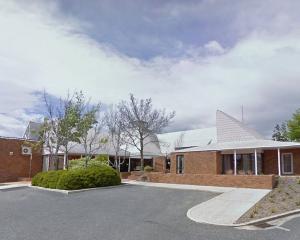
Kiwi Anglers First convener David Linklater, of Waipahi, said the group had launched a website and would "make a push" to recruit members in August.
"We want the resident angler to do something because to do nothing is to surrender your heritage to the tourists."
The group wanted Fish & Game to impose restrictions on commercial fishing guides and foreign fishermen to protect the fishery and the rights of New Zealand anglers.
"The resource is suffering and so is the resident angler ...
"At the moment, New Zealand is a free-for-all. The whole world can come here and fish.’’Guided groups were overfishing the back country rivers in the South.
"It’s a shadow of its former self."
The group attended an Otago Fish & Game council meeting in October last year and council member Ian Cole called the group "xenophobic".
As Mr Cole was a fishing guide, he had a conflict of interest, and should have abstained from the discussion, Mr Linklater said.
The core members of the group were Mr Linklater, Ray Grubb, of Karitane, and Bruce McGavin, Melvin Tudor, Murray Smart, John Thomson, Robin Hulsbosch, Chris Hyndman, John Dean and John Highton, all of Dunedin, and Dave Witherow, of Balfour.
Mr Witherow, an Otago Fish & Game council member said he did not consider the group to be xenophobic but did not mind the label.
"I think xenophobia has got an unduly bad name. What is wrong with a bit of xenophobia?
"If you are completely devoid of xenophobia, you are inviting the rest of the world to overrun your nation."
He wanted Fish & Game to "properly manage the fishery in the interest of the people who own them".
He wanted Fish & Game to impose limits on the number of tourists and guides allowed to fish in New Zealand, he said.
The non-resident licence fee, introduced in 2014, could be increased to bring about a decrease in the number of foreign anglers.
The amount of time foreign anglers and guides were allowed to spend fishing in New Zealand could be restricted.
A lack of restrictions on foreign anglers was "degrading the angling experience" for New Zealanders, he said.
Otago Fish & Game council chief executive Niall Watson said the "wellbeing of the fishery was the priority" of the council.
Resident fishermen took priority over commercial fishermen, he said.
"Commercial use shouldn’t be allowed to dominate fisheries."
A guide licence needed to be implemented.
Fisheries under pressure, such as back country waterways, needed increased management to maintain angling quality, he said.
The management methods, including the non-resident licence, could be used to "make fishery management more sophisticated and target problem areas".
"The missing link is the guide licence."












